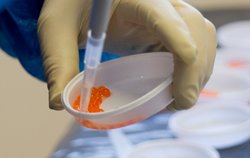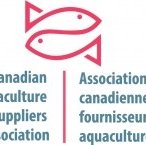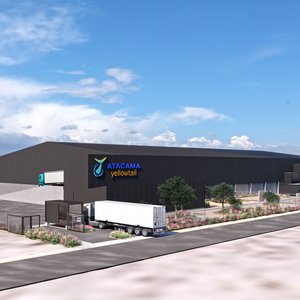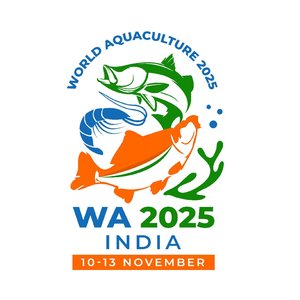In less than 50 years, Atlantic salmon farming has become a major industry in Norway, and several attempts at predicting future growth have been made. Genetics has played an important role in the optimization and efficiency of all food production, but the benefits of genetic selection in aquaculture are less documented.
An international study investigated the impact of 50 years of balanced genetic selection on the growth and productivity of the Norwegian Atlantic salmon industry. Experiment eggs from females, representing present-day farmed Atlantic salmon (generation 11), were fertilized with cryo-preserved milt from males representing previous generations, and the progeny (half-sib families) were reared under the same commercial farming conditions. At the end of this experiment, the difference in average body weight between generation 0 and half-sibs from present-day salmon was 1.5 kg.
Results were used to model the past and future impact of genetic selection on the growth of the Norwegian aquaculture industry and showed that total Norwegian production of 2.5 to 3.2 million tonnes could be achieved in 2050 solely by improving the inherent growth potential of Atlantic salmon through genetic selection, reaching up to 77% of the goal of total Norwegian production of five million tonnes in the same period.
Further, the production time in seawater is expected to be reduced by 40 to 53% from 15.3 months in 2019 to a production time ranging from 9.2 to 7.2 months in 2050, respectively. Reduced production time in seawater results in reduced time at risk of diseases and other unfortunate events, and in the most progressive scenario, mortality in seawater was expected to be reduced by up to 50%.
“This study quantifies the effect of genetic selection for increased growth rate and estimates potential industry growth. Such numbers have not been available previously and now we provide new input to the discussion regarding sustainable growth of Atlantic salmon farming both in Norway and internationally,” said Ingun Næve, senior researcher in AquaGen and author of the study. “Seeing the potential effect of our balanced genetic selection for the future growth of Norwegian aquaculture has been an eye-opening experience.”
Read the study here.













